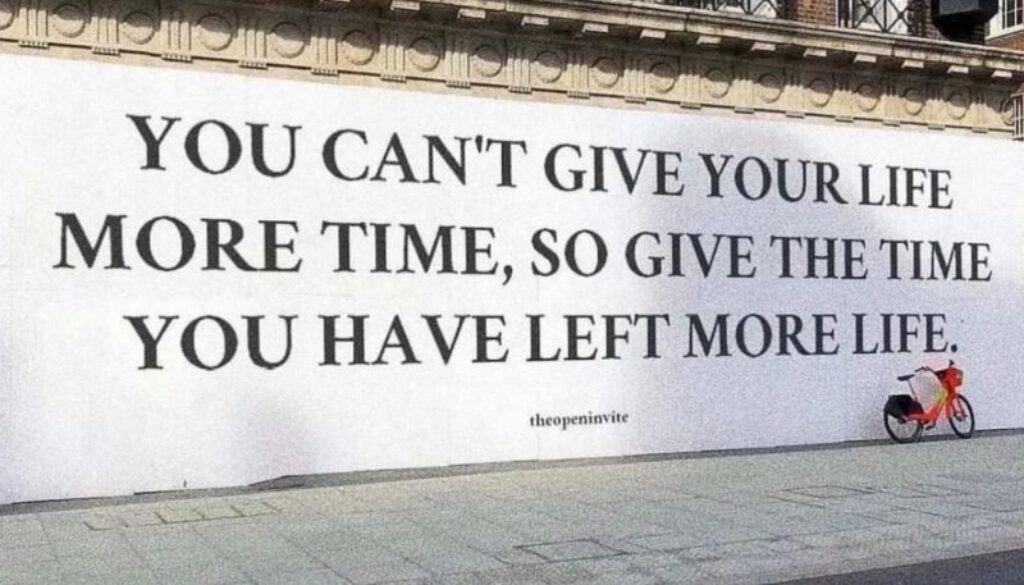Achievement Intelligence: When is Enough, Enough?

I coined the phrase Achievement Intelligence to help create guardrails from overworking, so we can enjoy our careers and love our lives simultaneously. We live in a culture where we are enticed to look for the next best thing – accomplish more – and constantly raise the bar, which can leave us feeling inadequate and overwhelmed.
Achievement Intelligence was inspired by the flurry of Artificial Intelligence (AI) tools that have empowered us to do more in our already jam-packed lives and careers.
The benefit of AI is taking shape with the aim of improving the lives of every person on the planet. In the world-of-work, AI is empowering users in every industry to increase sales, efficiency, and productivity. While there are clear business wins in doing and achieving more, the relentless focus on more is wreaking havoc on people and workplace cultures. Burnout, exhaustion, and overwhelm of workers is exacerbating depression anxiety, and stress that leads to debilitating health and a revolving door of talent. This is not a sound business case for success, nor is it the right way to treat people.
I was featured on the HR Works podcast hosted by Josh Zygmont of SimplifyMedia to discuss Achievement Intelligence and what it means in practice. Listen here.
Imagine a world-of-work where:
- Organizations focused on the highest quality of work instead of the highest quantity with mediocre outcomes – less can be more.
- Sustainable cultures of wellbeing were celebrated and recruiting and retaining top talent was not a constant struggle.
- Shifting the goal mindset to celebrate achievements, and not always raising the bar to an unreachable level at the expense of worker wellbeing.
- The busy brag and burning the candle at both ends were not applauded to feed work addiction (the only addiction we celebrate) to create healthy and vibrant work cultures.
- We focused on living a life of vitality instead of constantly trying to mitigate burnout.
Wellbeing at work and organizational culture matters. Workers can always do more, but to what end if the result is perpetual burnout? It’s time to put a new guardrail in place with Achievement Intelligence, so we don’t destroy the human workers essential to a high functioning and civil society.
What is Achievement Intelligence?
Achievement Intelligence is my idea for a new layer we must consider honoring the humans doing the work. This is a guardrail we must put in place so the output we give at work creates the outcomes we want in life and career. People can thrive in their careers if they have a chance to lead a healthy and fulfilling life at the same time.
The data tells us that you can’t do great work in a space of overwhelm and exhaustion. Celebrating and encouraging overwork and work addiction behaviors leads to massive retention and recruiting issues, and loss of morale and productivity. It’s an equation of diminishing returns – over working does not lead to more robust outcomes. In fact, productivity falters, and mistakes happen when people are overworked.
Less can be more when we focus on quality and not only quantity. If we always raise the bar and shoot for higher goals, the work is not sustainable, unless more resources (human, financial, tools, etc.) are provided, which is rarely the case. Burnout is not the price we must pay for success. It’s time to celebrate “enough” and honor the talent achieving the work so we can focus on what’s timeless and uniquely human: empathy, caring, compassion, connectivity, and forgiveness. Technology won’t ever be able to honor these human emotions, behaviors, and characteristics.
It’s time to reframe workaholic behavior to high achiever behavior and be satisfied with giving 100%. A Math professor friend says 110% is mathematically impossible, so let’s reframe and value that 100% is impactful and enough. We should banish the word over-achiever and reframe with high achiever.
A Business Case for Achievement Intelligence
Human capital is the most important asset in every organization. Many companies are desperately trying to mitigate the burnout of their workforce, but they are addressing the wrong issue. I’s time to take a preventative approach and focus on living a life of vitality instead of only trying to address burnout.
Start by asking your people what they need. So many companies make top-down decisions without asking employees what they need to do their best work. Culture is not an HR project – it should be an all-play in an organization. This is a great time to reboot and focus on how to design cultures with the people in your organization that support flexibility, wellness at work, and psychological safety.
Success should be a shared vision, so each player understands their WHY and purpose in the organization, which leads to engagement and strong outcomes.
Comparison is the Thief of Joy
Social media has created a dangerous envy loop, where people are comparing each other with perfectly filtered photos and experiences leaving many of us feeling less than. Be brave and stop comparing yourself to others and celebrate who you are now. Don’t get stuck in the vicious cycle of, “It will get better, when…” Own your realities in life and career and ponder what success, meaning, and fulfillment truly mean to you.
Is the high paying career that keeps you working around the clock gratifying? Reflect on what you really want out of life and career. It’s ok to be happy with where you are. Give yourself permission to enjoy where you are now – you don’t have to always look for the next best thing.
“You can’t give your life more time, so give the time you have more life.”
As my friend and colleague, Roberta Matuson who writes a savvy LinkedIn newsletter you should check out shared, “You can always make another dollar, but you can’t make another minute.” Savvy wisdom from her longtime mentor.
We must keep evolving – we are works in progress. We must optimize work without allowing it to overwhelm and impede outcomes and destroy wellbeing. Tap into the better angels of our nature and consider the guardrails of Achievement Intelligence. Enough is enough.






